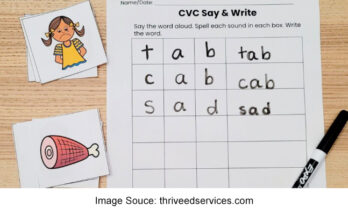Spending quality time with children is essential for their growth and development, both emotionally and mentally. It helps build strong bonds, create meaningful memories, and shape children into well-rounded individuals. Here are some tips for spending quality time with your children:
Turn off distractions:
Quality time with children requires undivided attention, so it’s important to minimize distractions such as televisions, phones, and computers. This helps create a more focused and engaging experience and shows children that they are a priority.
Get involved in their interests:
Take an interest in your child’s interests, whether it be sports, arts, or music. This helps children feel valued and understood and can lead to new shared experiences and hobbies. By participating in their interests, parents can also teach children important life skills such as teamwork and dedication.
Plan special activities:
Regularly plan special activities, such as trips to the park, cooking together, or going to a museum. This helps create a sense of anticipation and excitement and provides opportunities for new experiences and memories. Regularly scheduled activities also help establish routines and structure, which can be comforting for children. You could even watch free cartoons for kids and laugh together over their favourite characters.
Have one-on-one time:
Spending quality time with each individual child is important, as it allows for special bonding and attention. This can be done through planned activities or simply spending time together, such as reading a book or taking a walk. By having individual time with each child, parents can better understand their unique personality and needs, and tailor their approach to best support each child’s growth and development.
Play games:
Playing games with children is a great way to bond, have fun, and teach important skills such as teamwork and strategy. Board games, card games, and sports are all great options. This type of interaction helps children feel supported and loved and teaches valuable lessons about cooperation and competition.
Take turns:
Encourage children to take turns and listen to each other during activities and games. This helps build important communication and listening skills and teaches children the value of cooperation and compromise.
Show affection:
Physical affection, such as hugs, cuddles, and holding hands, can help build strong emotional bonds and make children feel loved and supported. This type of affection also helps children feel safe and secure, which can improve their overall well-being.
Ask open-ended questions:
Encourage conversation and discussion by asking open-ended questions. This can help children feel heard and understood and can lead to meaningful conversations and insights. Open-ended questions also help children practice critical thinking and problem-solving skills, which will be valuable throughout their lives.
Create traditions:
Establishing family traditions, such as holiday celebrations, birthday traditions, or annual trips, can help create a sense of family identity and provide children with a sense of stability and security. These traditions also provide opportunities for shared experiences and memories, which can strengthen the bonds between family members.
Lead by example:
Children learn by example, so it’s important for parents and caregivers to model the behavior they wish to see in their children. This includes demonstrating good communication skills, active listening, and cooperation. By modeling positive behavior, parents and caregivers can help children develop important life skills and positive habits.
In conclusion, spending quality time with children is essential for their growth and development. By turning off distractions, getting involved in their interests, and regularly scheduling special activities, parents and caregivers can help create a supportive and engaging environment for children. By showing affection, asking open-ended questions, and creating traditions, parents can strengthen the bonds between family members and provide children with a sense of




